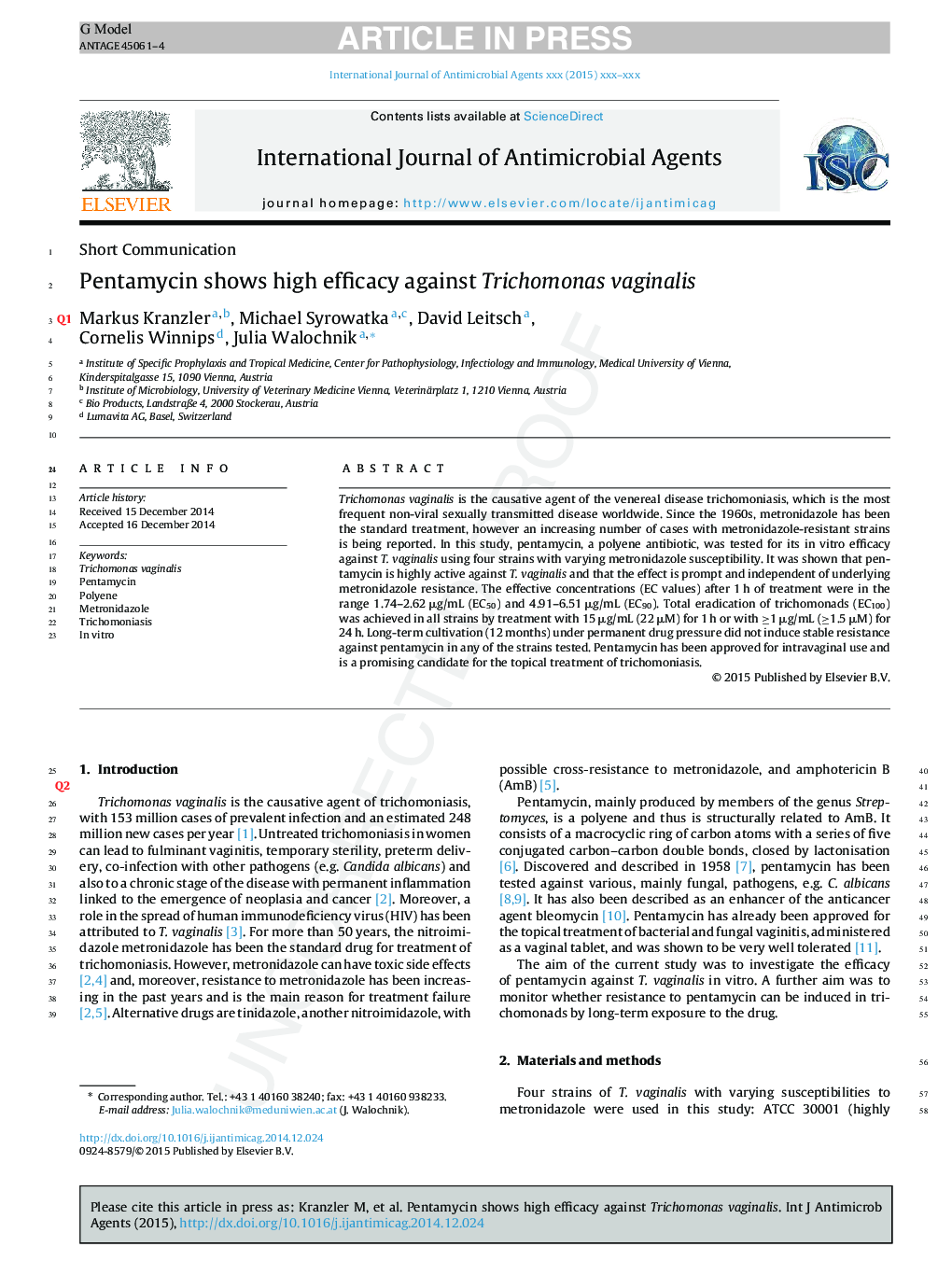| Article ID | Journal | Published Year | Pages | File Type |
|---|---|---|---|---|
| 6117670 | International Journal of Antimicrobial Agents | 2015 | 4 Pages |
Abstract
Trichomonas vaginalis is the causative agent of the venereal disease trichomoniasis, which is the most frequent non-viral sexually transmitted disease worldwide. Since the 1960s, metronidazole has been the standard treatment, however an increasing number of cases with metronidazole-resistant strains is being reported. In this study, pentamycin, a polyene antibiotic, was tested for its in vitro efficacy against T. vaginalis using four strains with different metronidazole susceptibilities. It was shown that pentamycin is highly active against T. vaginalis and that the effect is prompt and independent of underlying metronidazole resistance. The effective concentrations (EC values) after 1 h of treatment were in the range 1.74-2.62 μg/mL (EC50) and 4.91-6.51 μg/mL (EC90). Total eradication of trichomonads (EC100) was achieved in all strains by treatment with 15 μg/mL (22 μM) for 1 h or with â¥1 μg/mL (â¥1.5 μM) for 24 h. Long-term cultivation (12 months) under permanent drug pressure did not induce stable resistance against pentamycin in any of the strains tested. Pentamycin has been approved for intravaginal use and is a promising candidate for the topical treatment of trichomoniasis.
Related Topics
Life Sciences
Immunology and Microbiology
Applied Microbiology and Biotechnology
Authors
Markus Kranzler, Michael Syrowatka, David Leitsch, Cornelis Winnips, Julia Walochnik,
